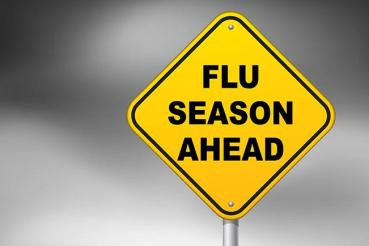Making Mental Well-Being Top of Mind
Chicago’s gun violence dominates the daily news, but its psychological impact on Rush’s communities goes far beyond the headlines — it’s one of the many causes of mental health disorders in Chicago’s youth. In fact, Rush psychologists found that post-traumatic stress rates are significantly higher among residents of the city’s West Side neighborhoods than among returning Iraq and Afghanistan military veterans.
Changing the course of care, a $450,000 gift from the Woman’s Board of Rush University Medical Center will bring desperately-needed mental health services directly to Chicago families through Rush’s school-based health centers.
Seeing more than 1,400 youth each year in more than 4,000 visits, Rush’s school-based health centers fill the gaps in preventive and primary health care for students, parents and the surrounding community. Even as gains are made in primary care in Rush’s clinics at Orr Academy High School, Richard T. Crane Medical Preparatory High School and Simpson Academy for Young Women, Rush teams have identified a 400 percent increase in mental health issues requiring treatment in the past seven years — a severe need the centers are not fully-equipped to address.
“The Woman’s Board felt it was such a great opportunity to layer mental health services into a setting that students and their families were already comfortable with,” said Debra Beck, president of the Woman’s Board. “Some of our school-based health centers have been operating for more than 20 years, so they’re truly community fixtures where people feel safe.”
The board’s gift will launch Rush’s school-based mental health program to provide screenings and treatments that recognize and respond to traumatic stress on children, caregivers and service providers — many who encounter depression, substance abuse, poverty and violence daily.
A longtime passion for mental well-being
Supporting mental health initiatives has been a focal point of the Woman’s Board’s 134-year history. With more than $34.1 million in support since it began keeping fundraising records in 1974, the board is one of Chicago’s longest running philanthropic boards and one of Rush’s largest, most loyal supporters. The school-based program is the board’s latest effort to address some of our community’s greatest health challenges.
“We have a very strong connection to mental well-being,” said Beck. “We saw the school-based mental health program as a way to raise awareness about mental health issues while providing young people a stable place to find the help they need.”
Ultimately, the program will serve as a national model for providing mental health services to underserved communities, creating a more unified, standardized way to partner with local schools in addressing mental health needs
“We not only want to focus on serious mental health issues but also identify big picture problems, culture and climate, and what we can do to work with the school team to speak the same language,” said Sally Lemke, director of community based practices at Rush. “We ultimately want to help kids achieve emotional regulation, reinforcing their assets, strengths and resilience — eventually improving overall school performance.”
Breaking the barriers to treatment
For the average primary care office, referring a teenager offsite for mental health treatment has a 20 percent rate of successful linkage to services. “Because our kids trust us, we help them navigate services with about a 60-to-70 percent success rate, but we want that to be 100,” said Lemke. “By bringing these services in-house, we will be able to do that.”
Thanks to the Woman’s Board’s support, each school-based health center will have a permanent, onsite social worker, as well as a psychiatric mental health nurse practitioner, child psychiatrist and child psychologist working between the three schools for complex care needs, consultation and family work.
“We have the opportunity to build something that a lot of school-based health centers only dream about,” said Lemke. “Everybody has the need, not everybody has the resources — and that’s what the Woman’s Board has provided.”
Funding our future leaders
Continuing their support of our communities, the Woman’s Board’s fall benefit will raise funds for the Rush Education and Career Hub, or REACH — an innovative education and workforce pipeline development program that provides college readiness classes, mentorship, job shadowing and internships for West Side high school and college students.
Learn more about the event — An Evening of Whimsy — taking place on Oct. 19, 2018, at The Art Institute of Chicago.




